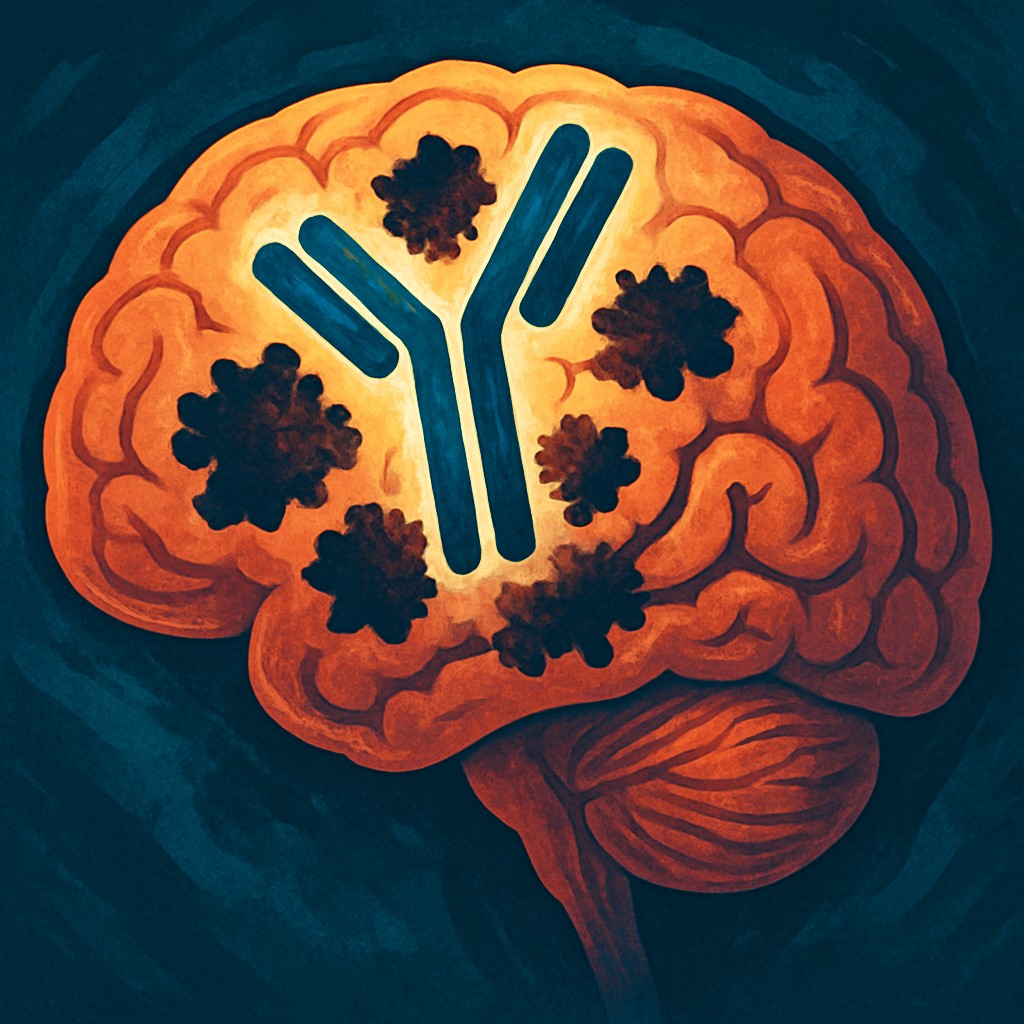
A landmark study published in JAMA in August 2023 shows that the phase 3 TRAILBLAZER-ALZ 2 clinical trial has demonstrated that donanemab, an anti-amyloid monoclonal antibody, significantly slows cognitive and functional decline in individuals with early symptomatic Alzheimer's disease (AD). This rigorous, multinational, double-blind, placebo-controlled trial provides some of the strongest evidence to date for disease modification in Alzheimer's, especially among patients with confirmed amyloid pathology and low to medium tau burden.
Study Design and Population
TRAILBLAZER-ALZ 2 enrolled 1,736 participants aged 60 to 85 with early symptomatic AD, defined as mild cognitive impairment (MCI) or mild dementia, confirmed by positive amyloid PET scans and either low/medium or high tau PET pathology. Conducted at 277 centers in 8 countries, participants were randomly assigned in a 1:1 ratio to receive either donanemab (700 mg IV for 3 doses, then 1400 mg every 4 weeks) or placebo for a treatment duration of 72 weeks.
Treatment adjustments were made if amyloid clearance benchmarks were met, based on PET Centiloid thresholds, allowing for a personalized de-escalation strategy. This adaptive protocol is unique, aiming to optimize safety while maintaining efficacy.
Key Efficacy and Safety Results
Clinical Outcomes and Adverse Events at 76 Weeks
Outcome | Donanemab | Placebo | Treatment Effect |
|---|---|---|---|
iADRS change (low/medium tau) | -6.02 | -9.27 | +3.25 points (35.1% slower decline, P < .001) |
iADRS change (combined population) | -10.19 | -13.11 | +2.92 points (22.3% slower decline, P < .001) |
CDR-SB change | +1.20 | +1.88 | -0.67 points (36.0% slower decline, P < .001) |
ADAS-Cog13 change | -2.23 | -3.75 | +1.52 points (32.4% slower decline) |
ADCS-iADL change | -3.15 | -4.98 | +1.83 points (39.9% slower decline) |
Risk of clinical progression (CDR-Global) | 18.0% | 28.0% | 38.6% risk reduction, HR: 0.61 (P < .001) |
% Stable at 1 year (no CDR-SB decline) | 47% | 29% | +18% absolute benefit (P < .001) |
Amyloid PET clearance (at 76 weeks) | 76.4% | 0.3% | Substantial amyloid reduction |
Plasma P-tau217 change (log10) | -0.22 | - | Significant reduction, P < .001 |
Tau PET frontal SUVR | No significant difference | - | - |
Any ARIA-E (edema/effusion) | 24.0% (52 symptomatic) | 2.1% (0 symptomatic) | Most events mild/moderate and resolved |
ARIA-H (microhemorrhage/hemosiderin deposits) | 31.4% | 13.6% | Increased MRI-detected events |
Infusion-related reactions | 8.7% | 0.5% | |
Serious adverse events | 17.4% | 15.8% | |
Deaths (treatment-related) | 3 | 1 | All in donanemab group involved ARIA |
Interpretation and Clinical Implications
Donanemab provides a clinically meaningful benefit for individuals with early Alzheimer's disease, particularly those with low or medium tau pathology. These benefits are observable in cognitive, functional, and global measures, with an average delay in disease progression ranging from 4 to 7.5 months depending on the specific outcome metric.
Significantly, the trial underscores the importance of biomarker-based patient selection. Patients with high tau pathology exhibited reduced treatment response, likely due to advanced neurodegeneration.
While donanemab is associated with an increased risk of amyloid-related imaging abnormalities (ARIA), most cases were manageable with appropriate monitoring and did not result in permanent harm. However, APOE ε4 carriers remain a higher-risk subgroup.
Clinical Implications
Donanemab is among the first anti-amyloid agents to demonstrate clinically meaningful slowing of disease progression in early symptomatic Alzheimer's disease, particularly in individuals with lower tau burden. Though the treatment presents safety considerations, especially regarding ARIA, it offers a potentially disease-modifying option for a carefully selected patient population.
Notably, donanemab's biomarker-guided protocol, including PET-confirmed amyloid and tau status, promotes a precision medicine approach to AD treatment, moving the field beyond symptomatic care toward pathology-targeted intervention.
Conclusion
The TRAILBLAZER-ALZ 2 trial provides compelling evidence that donanemab can significantly slow cognitive and functional decline in patients with early Alzheimer's disease. As AD treatment enters a new era of biologics and biomarker-driven care, donanemab signifies a major step forward, but requires careful patient selection and ongoing monitoring to balance its therapeutic benefits against its risks.